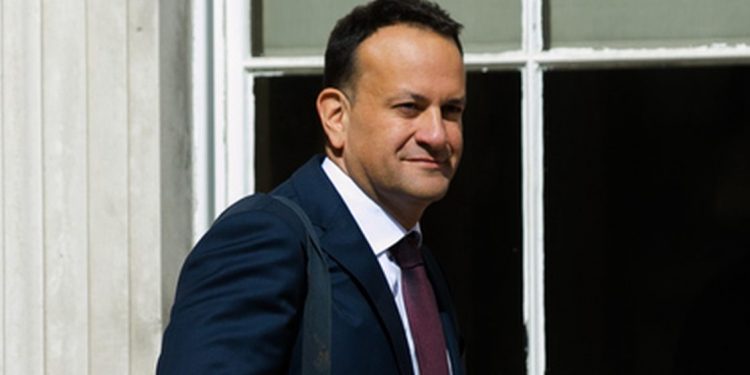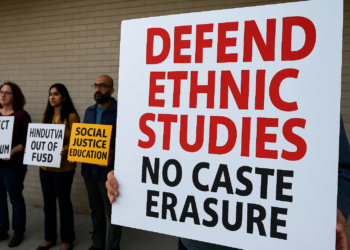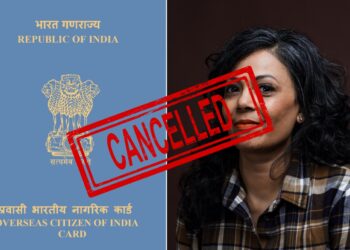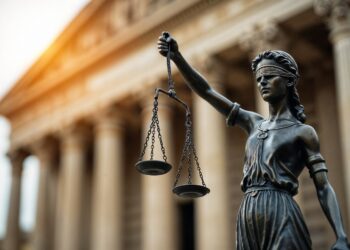Indian-origin, Leo Eric Varadkar was re-elected as Ireland’s prime minister on Saturday, in accordance with a job-sharing deal negotiated by the nation’s centrist coalition government,
In a special meeting of the Dáil, Ireland’s lower house of parliament, members decided to support Varadkar’s nomination to succeed Micheál Martin. President Michael D. Higgins of Ireland gave him the official seal of office, which served as confirmation of his appointment.
Since a historic coalition agreement between Martin’s Fianna Fáil party and Varadkar’s Fine Gael was formed as a result of the 2020 election, Martin has been the country of Ireland’s head of state or Taoiseach.
In their agreement to form a government with the smaller Greens, the parties stipulated that Martin would serve as prime minister for the first two years of the five-year tenure, with Varadkar serving as his deputy. Then, the men would trade roles.
The housing crisis, rising energy prices, an overburdened healthcare system, and tense post-Brexit relations with the UK are just a few of the challenging issues the administration must deal with.
During the remaining months of the government’s tenure, Varadkar committed to addressing the housing and cost of living challenges by “offering hope and housing, economic opportunities, and a fair start for all.”
On Saturday morning, Martin, 62, signed the resignation letter to the president. He stated that holding the position of Taoiseach had been “the honour of a lifetime” and that he was “looking forwards to the second phase of this government.”
With their roots in opposing factions of Ireland’s civil war a century ago, Fine Gael and Fianna Fáil are both centrist parties that have a ferocious rivalry. They had never previously established a government together despite controlling Irish politics for decades.
Sinn Féin, a left-wing nationalist party that received the biggest number of votes in the 2020 election but was unable to muster enough support to form a government, was excluded from the coalition deal. Due to its historical ties to the Irish Republican Army and decades of conflict in Northern Ireland, the two mainstream parties have traditionally avoided Sinn Féin, but it has continued to gain support, particularly among younger voters.
Mary Lou McDonald, the leader of Sinn Féin, cast a no vote for Varadkar, claiming that the coalition administration was “out of touch, out of ideas, and out of time.”
The nation’s first openly homosexual prime minister and youngest-ever leader, Varadkar, 43, held office from 2017 until 2020. Leo Varadkar is the first biracial Taoiseach of Ireland, whose parents are Indian and Irish.
Varadkar claimed that given that Ireland is a predominantly Roman Catholic and conservative country and that it earned independence from Britain a century ago, attention during his first term was rightly focused on what his election represented for Ireland.
Nevertheless, he added, “I think we should focus on where our country is now and what needs to be done as we prepare for our next century of statehood.”
When Varadkar assumed control of the Fine Gael government in 2017, he was viewed as a new face. But his detractors assert that he has lost his appeal after serving as Taoiseach (prime minister) for two and a half years, failing to win the 2020 election, and facing controversy while serving as deputy premier.
According to a December poll conducted by Ireland’s Sunday Independent, 43% of respondents preferred Martin to Varadkar as the country’s leader. Meanwhile, Varadkar’s supporters highlight his leadership skills in managing the country through the coronavirus pandemic and the fallout from the UK’s 2016 EU referendum.
In a nation where a rigid, traditional Catholic morality predominated well into the second half of the 20th century, Varadkar’s ascent to the top of Irish politics was remarkable. He became the youngest Taoiseach in the history of the nation at age 38, as well as the first openly gay and first of Indian descent.
Varadkar was born in Dublin to an Indian immigrant father who was a qualified doctor and an Irish mother who worked as a nurse. Varadkar reportedly informed his mother’s acquaintances that he wanted to be the minister of health when he was just seven years old.
He entered general practice after receiving his medical degree from Trinity College Dublin, although he continued to be active in politics. In 2007, he won the Dublin West election for Fine Gael.
Varadkar openly came out as gay in 2015, prior to Ireland’s referendum legalising same-sex marriage. Matthew Barrett, his partner, is a cardiologist.
At the time, Varadkar told RTE, “I am a gay man; it’s not a secret, but it’s not something that everyone would necessarily know. It’s not something that defines me. It’s part of my character.”
His prominence was elevated by the revelation, which received plaudits from all facets of Irish politics and beyond.











